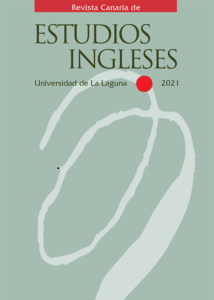Performing Masculinity, Performing the Self: Rudolfo Anaya’s Bless Me, Ultima and Heart of Aztlan
Abstract
This article explores how Bless Me, Ultima and Heart of Aztlan, the two earliest novels by acclaimed Chicano writer Rudolfo Anaya, problematise and negotiate Chicano masculinity issues. I will focus on the main characters of the novels, who, at different vital moments of their lives, question the meaning of manhood amidst important socio-economic changes and conflicting cultural traditions. Anaya reveals the complexity of being “mestizo” in American society, and exposes how hegemonic standards of masculinity are Manichean, restrictive and reliant on gender inequality. I will fi nally examine whether the novels challenge hegemonic gender orders, successfully negotiate non-heterosexist ideals of manhood, and ultimately contribute to the advancement of egalitarian gender relations for the Chicana/o community.



